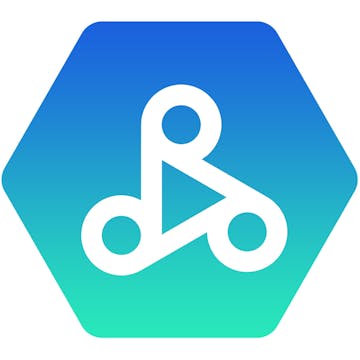
Good to know
Save this course
Activities
Review foundational concepts in Python
Show steps
Strengthen the foundation by reviewing Python concepts.
Browse courses on
Python
Show steps
-
Review online resources or textbooks on Python.
-
Complete practice exercises to test understanding.
Attend a local meetup or conference on Big Data
Show steps
Connect with professionals in the field and learn about industry trends.
Browse courses on
Networking
Show steps
-
Research local meetups or conferences.
-
Attend the event and engage with other attendees.
Creating a Hadoop cluster
Show steps
Creating a Hadoop cluster will allow you to become more comfortable in a foundational aspect of the course
Browse courses on
Hadoop
Show steps
-
Review documentation on creating a Hadoop cluster
-
Create a Hadoop cluster
-
Test your cluster
Six other activities
Expand to see all activities and additional details
Show all nine activities
Review Hadoop: The Definitive Guide
Show steps
Review Hadoop basics to strengthen understanding and build a foundation for the course.
View
Hadoop: The Definitive Guide: Storage and...
on Amazon
Show steps
-
Read chapters 1-3 to understand Hadoop architecture.
-
Install Hadoop on your local machine.
-
Run basic Hadoop commands to familiarize yourself with the system.
Organize and review course materials
Show steps
Enhance comprehension by organizing and reviewing course resources.
Show steps
-
Gather and organize course materials.
-
Review materials regularly to reinforce concepts.
Create a simple Hadoop cluster for practice
Show steps
Develop practical skills by creating your own Hadoop cluster.
Browse courses on
Hadoop
Show steps
-
Set up a virtual machine or cloud environment.
-
Install Hadoop and configure the cluster.
-
Test the cluster by running a sample job.
Follow online tutorials on Pig and Hive
Show steps
Expand knowledge of Pig and Hive through guided tutorials.
Browse courses on
Pig
Show steps
-
Locate tutorials on Pig and Hive.
-
Follow the tutorials to complete example tasks.
Develop a Spark application to analyze a large dataset
Show steps
Reinforce Spark concepts by building a practical data analysis application.
Browse courses on
Spark
Show steps
-
Gather and preprocess the dataset.
-
Write a Spark program to perform data analysis tasks.
-
Visualize and interpret the analysis results.
Contribute to an open-source Big Data project
Show steps
Gain real-world experience and contribute to the Big Data community.
Browse courses on
Open Source
Show steps
-
Identify open-source Big Data projects.
-
Review the documentation and contribute code or other resources.
Review foundational concepts in Python
Show steps
Strengthen the foundation by reviewing Python concepts.
Browse courses on
Python
Show steps
- Review online resources or textbooks on Python.
- Complete practice exercises to test understanding.
Attend a local meetup or conference on Big Data
Show steps
Connect with professionals in the field and learn about industry trends.
Browse courses on
Networking
Show steps
- Research local meetups or conferences.
- Attend the event and engage with other attendees.
Creating a Hadoop cluster
Show steps
Creating a Hadoop cluster will allow you to become more comfortable in a foundational aspect of the course
Browse courses on
Hadoop
Show steps
- Review documentation on creating a Hadoop cluster
- Create a Hadoop cluster
- Test your cluster
Review Hadoop: The Definitive Guide
Show steps
Review Hadoop basics to strengthen understanding and build a foundation for the course.
View
Hadoop: The Definitive Guide: Storage and...
on Amazon
Show steps
- Read chapters 1-3 to understand Hadoop architecture.
- Install Hadoop on your local machine.
- Run basic Hadoop commands to familiarize yourself with the system.
Organize and review course materials
Show steps
Enhance comprehension by organizing and reviewing course resources.
Show steps
- Gather and organize course materials.
- Review materials regularly to reinforce concepts.
Create a simple Hadoop cluster for practice
Show steps
Develop practical skills by creating your own Hadoop cluster.
Browse courses on
Hadoop
Show steps
- Set up a virtual machine or cloud environment.
- Install Hadoop and configure the cluster.
- Test the cluster by running a sample job.
Follow online tutorials on Pig and Hive
Show steps
Expand knowledge of Pig and Hive through guided tutorials.
Browse courses on
Pig
Show steps
- Locate tutorials on Pig and Hive.
- Follow the tutorials to complete example tasks.
Develop a Spark application to analyze a large dataset
Show steps
Reinforce Spark concepts by building a practical data analysis application.
Browse courses on
Spark
Show steps
- Gather and preprocess the dataset.
- Write a Spark program to perform data analysis tasks.
- Visualize and interpret the analysis results.
Contribute to an open-source Big Data project
Show steps
Gain real-world experience and contribute to the Big Data community.
Browse courses on
Open Source
Show steps
- Identify open-source Big Data projects.
- Review the documentation and contribute code or other resources.
Career center
Data Engineer
Data Scientist
Machine Learning Engineer
Big Data Architect
Cloud Architect
Data Analyst
Business Intelligence Analyst
Software Engineer
Database Administrator
Data Warehouse Engineer
Data Integration Engineer
Data Security Analyst
Cloud Data Engineer
Data Governance Analyst
Data Architect
Reading list
Share
Similar courses
OpenCourser helps millions of learners each year. People visit us to learn workspace skills, ace their exams, and nurture their curiosity.
Our extensive catalog contains over 50,000 courses and twice as many books. Browse by search, by topic, or even by career interests. We'll match you to the right resources quickly.
Find this site helpful? Tell a friend about us.
We're supported by our community of learners. When you purchase or subscribe to courses and programs or purchase books, we may earn a commission from our partners.
Your purchases help us maintain our catalog and keep our servers humming without ads.
Thank you for supporting OpenCourser.



